Backpacking Nutrition: Fueling Farther Using the Goldilocks Approach
By Sadie Hitsky & Aaron Owens Mayhew, MS, RDN, CD
Updated January 5, 2024
This post may contain affiliate links.

Carbohydrates and protein eaten in the appropriate amounts are the foundation for good backpacking nutrition. Remember that the goal for both of these nutrients is to meet (not exceed) your dietary needs. More is not always better; I will explain why later in this post.
Backpacking Nutrition Tip #1:
Forget the low-carb diet.
Carbohydrate is your body’s preferred fuel source and integral to good backpacking nutrition. The trail is no place to skimp on carbs! You should always fuel up with a small amount of carbohydrates before a hike. Then, consume carbohydrate-containing foods throughout your day to sustain energy. If hiking for more than 2.5 hours, try to consume 60-90 g carbs (240-360 calories) per hour.
If you’re a keto backpacker, here are a few blog posts explaining our focus on carbohydrates while backpacking.
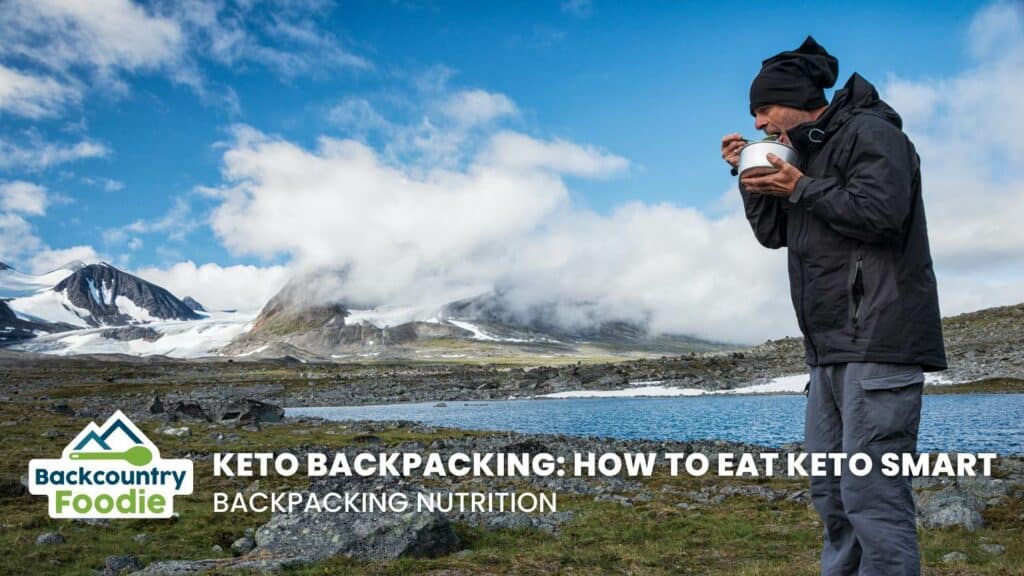
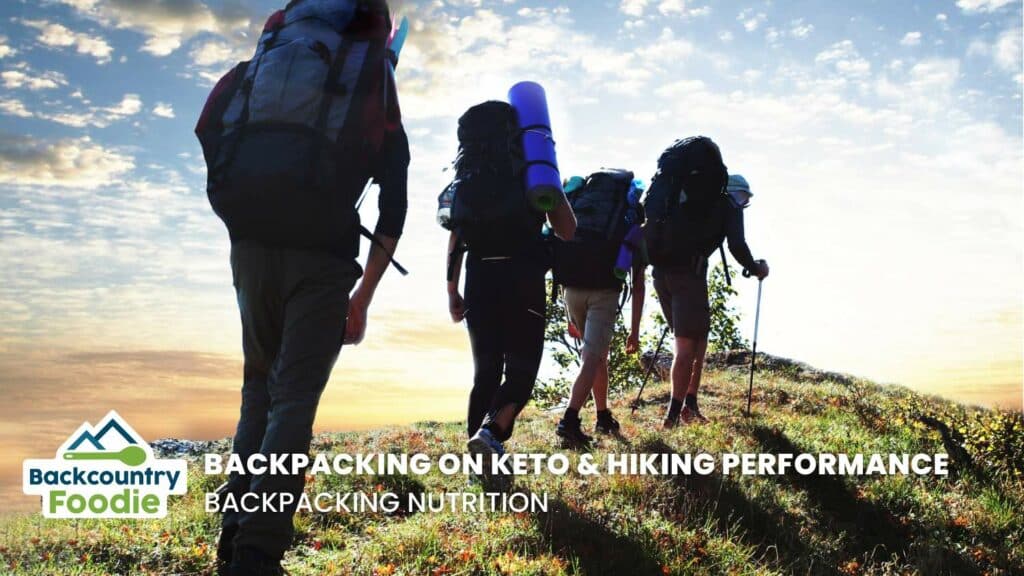
Which foods contain carbohydrates?
Fruits, vegetables, pasta, rice, crackers, chips, quinoa, cereal, and oatmeal are common hiker foods that contain carbohydrates. An easy way to remember this is that carbohydrate foods come from the earth. Those might seem obvious, but there are foods you might not consider as sources of carbohydrates, such as milk, cheese, yogurt, non-dairy alternatives, and nuts.
Which foods do not contain carbohydrates?
That leaves pure animal products (without breading or sauces) and pure fat sources such as butter and oils.
How much carbohydrate is enough?
Fruits:
The recommended intake is 2 pieces of fresh fruit or 1 cup of dehydrated per day. This goal is typically easier to meet as dried fruit is included in various trail mixes and backpacking meals.
Vegetables:
The recommended intake is 2 ½ cups of fresh vegetables per day or 1 ¼ cups of dehydrated per day. That’s a hard goal to meet at home, let alone while backpacking.
Whole grains:
Here’s how backpackers can make up the carbs that aren’t consumed via fruit or vegetables. The recommended intake is 3-5 servings of whole grains daily. A hungry backpacker can easily meet or exceed this goal by including whole grains with each meal and possibly snacks. Whole grains not only fuel your muscles but reduce problems with constipation. This can be a real problem for long-distance hikers or folks on extended expeditions who consume low-fiber foods for weeks to months. Good backpacking nutrition can be achieved by consuming various dehydrated fruits, dehydrated vegetables, and whole grains.
Here are a few of our favorite 30 g carbohydrate snacks:
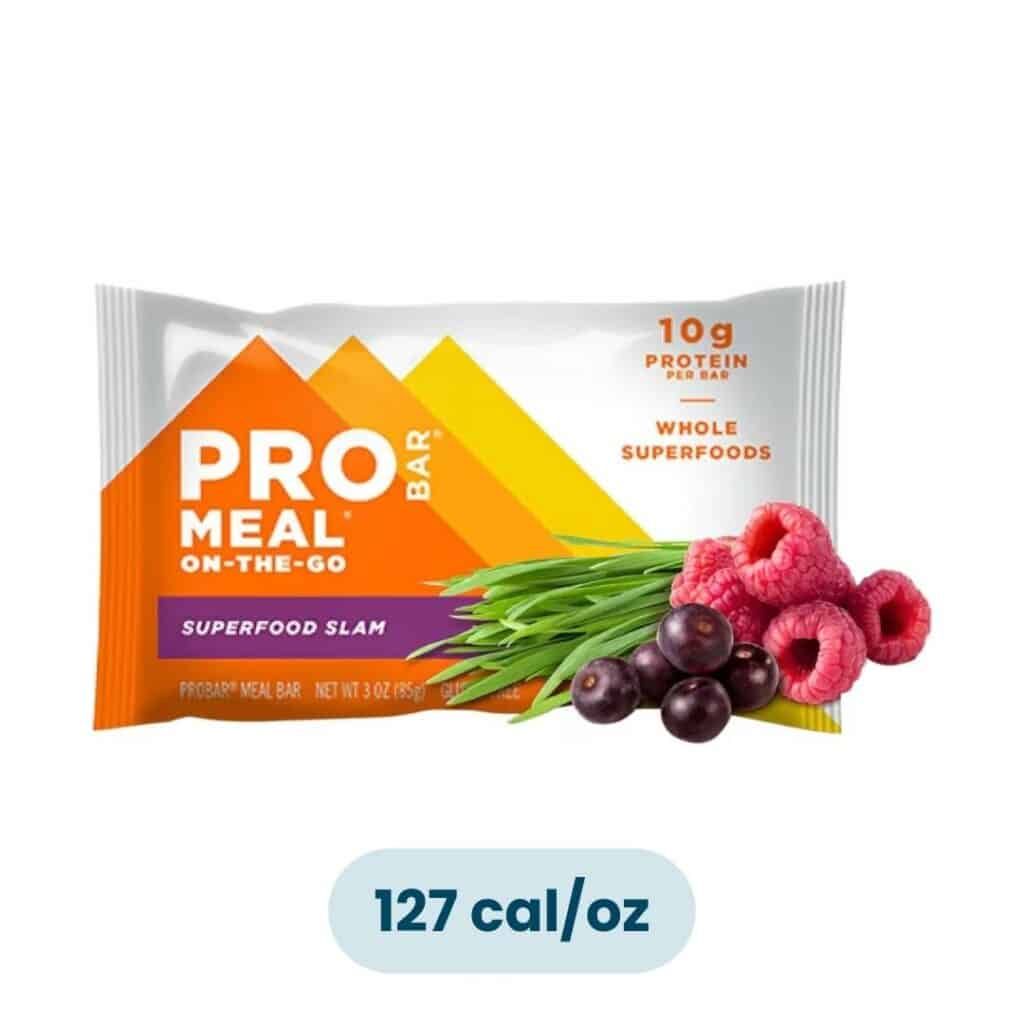
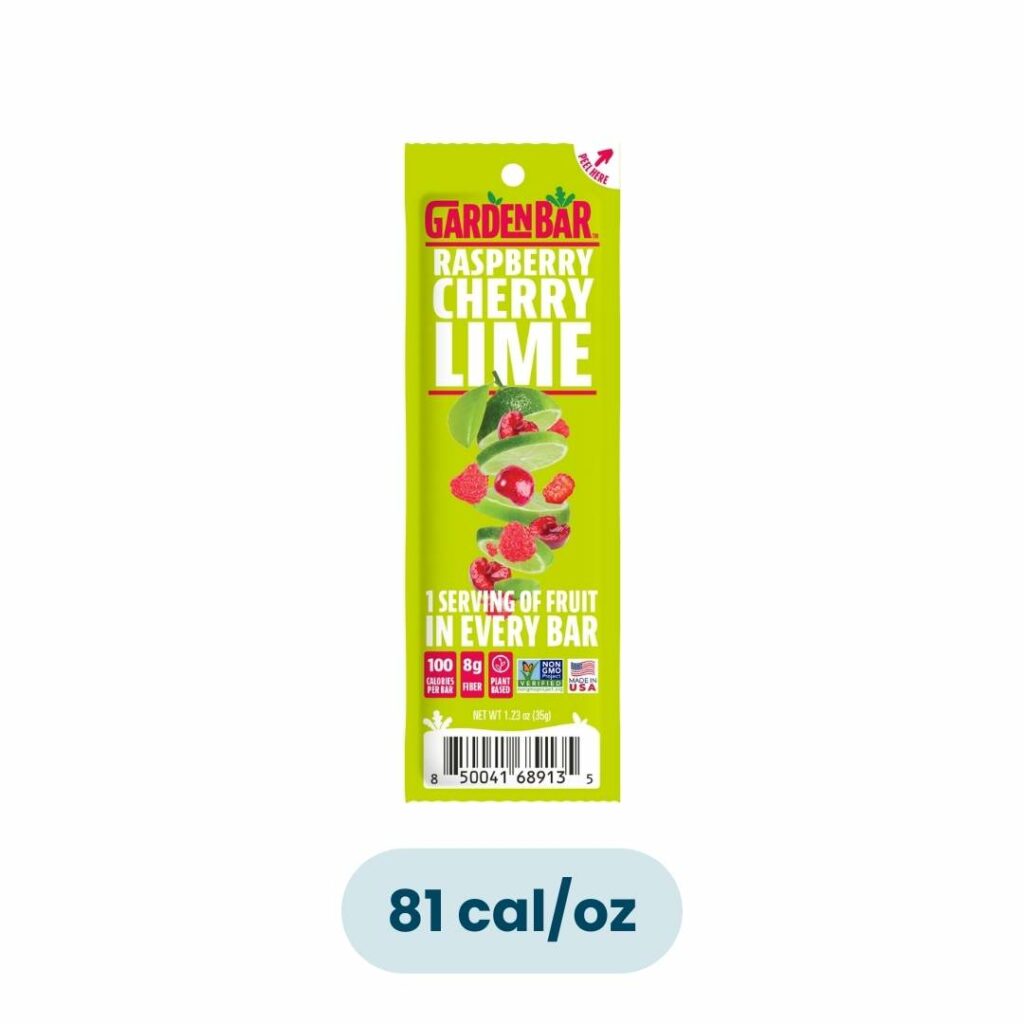
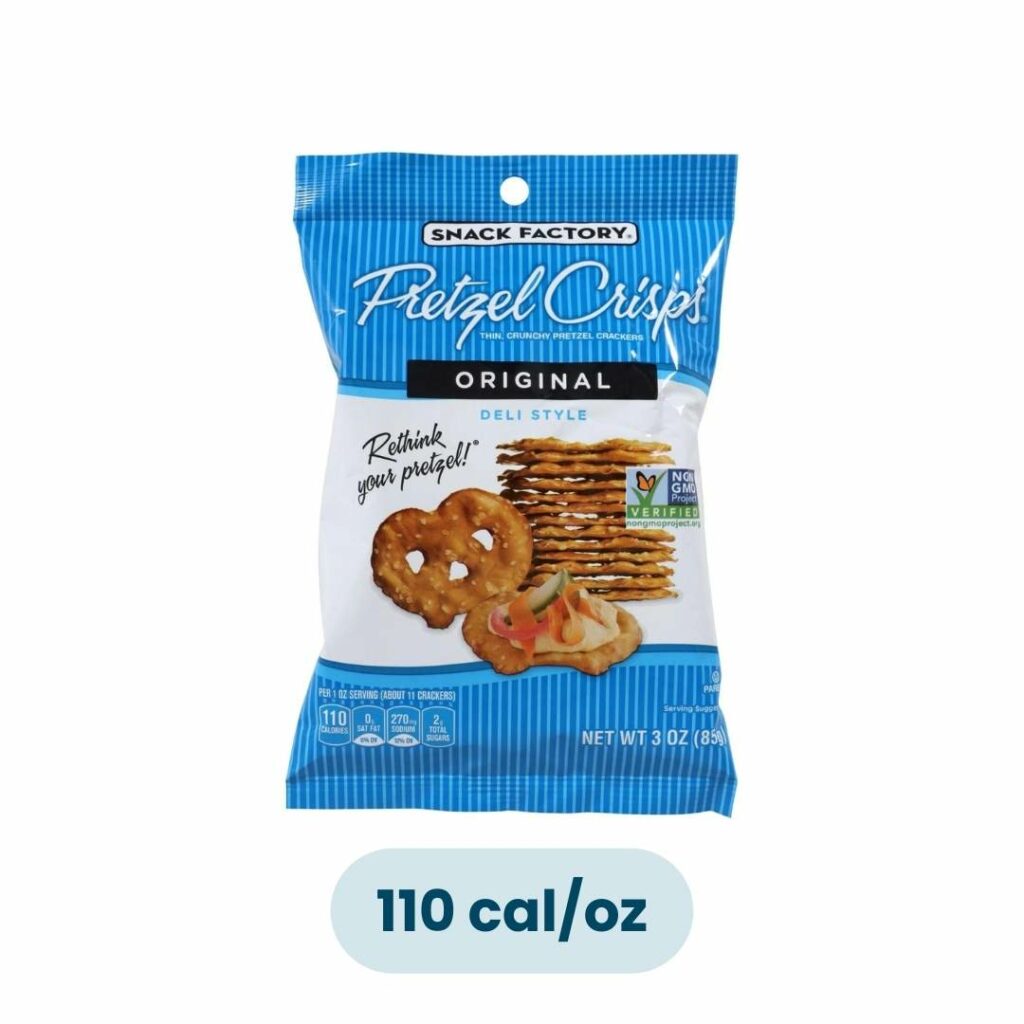
Calculating carbohydrate needs
For hikes that are 1-3 hours in duration, which is considered an endurance activity, you’ll need 2.5-4.5 grams of carbohydrates per pound (5-10 g/kg) per day. Backpackers’ individual carbohydrate needs can be calculated using an average of 8 grams of carbohydrates per 1 kg of body weight.
To determine your daily carbohydrate needs:
- Divide your weight in pounds by 2.2 and multiply that number by 8.
For example, carbohydrate needs for a 150-pound adult:
- 150 lb /2.2 lb per kg = 68 kg x 8 g per kg = 545 grams of carbohydrate per day.
Are more carbs better?
Not if the source of carbs just sits in your stomach. Keep in mind that too much food taken in at once can slow the rate of digestion. Our body can also only absorb so much carbohydrates at once. For most of us non-elite athletes, a maximum of 1 gram of carbohydrate per minute or 60 grams of carbohydrate per hour is the most our body can utilize at once. Elite athletes can utilize closer to 90 grams of carbohydrate per hour. More isn’t always better.

Backpacking Nutrition Tip #2:
The Goldilocks approach to protein.
Protein also plays an integral role in good backpacking nutrition. Protein is important for recovering from your hike and can prolong satiety when paired with carbohydrates. For most hikers, eating about 15-20 grams of protein at each meal and 5-10 grams of protein per snack is plenty to meet your daily protein needs. Contrary to popular belief, exceeding protein needs does not enhance performance. It can be detrimental to performance because carrying extra protein will add unwanted weight to your pack. When thinking about protein, channel your inner Goldilocks to pack just the right amount.
Which foods contain protein?
Freeze-dried chicken and beef, tuna pouches, jerky, and textured vegetable protein (TVP). Those might seem obvious, but some foods, such as milk, cheese, yogurt, beans, nuts, and seeds, are good sources of carbohydrates and protein. Get more bang for the food weight carried by choosing food containing both carbohydrates and protein.
Here are a few of our favorite combination foods:

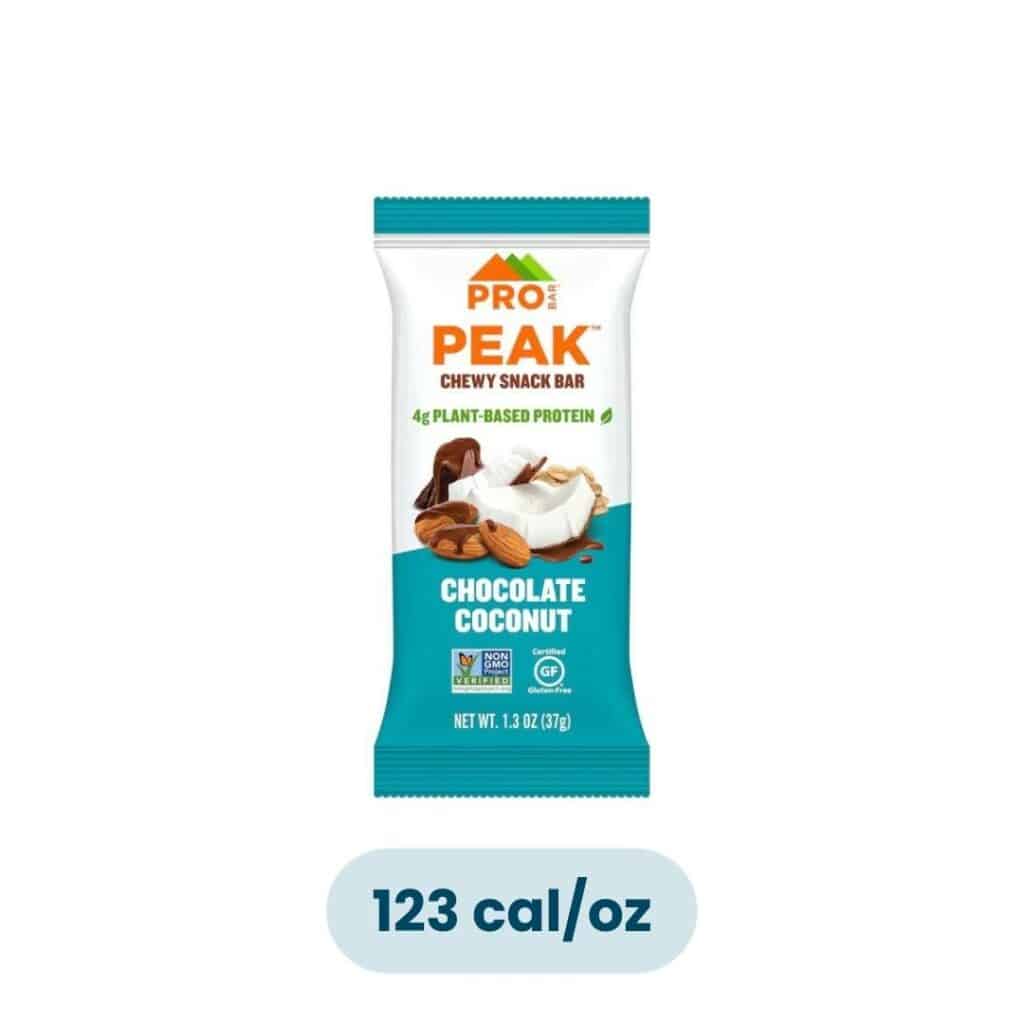
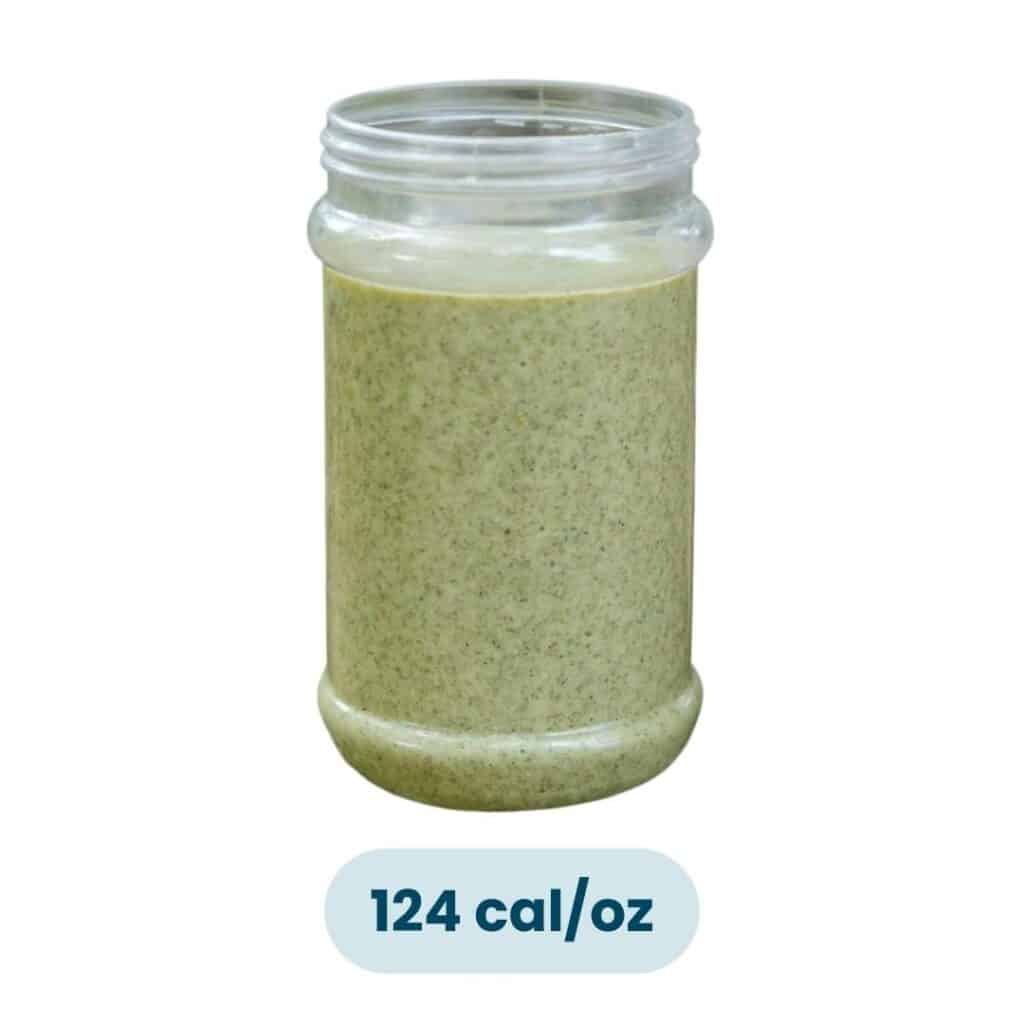
How much is just right?
The recommendation for an average adult on a non-hiking day is 0.8 g of protein per kg of body weight per day. Backpackers, however, put a lot of stress on their bodies and require a greater protein intake.
Calculating protein needs
Individual protein needs for hikers and backpackers are calculated as 1.2-1.6 grams of protein per kg of body weight. This gives you a range for your protein goal. Protein needs can be higher or lower depending on factors like the length of your hike, elevation gain, terrain type, and the weight of your pack. The goal is to stay within this range.
To determine your daily protein needs:
- Divide your weight in pounds by 2.2, then multiply that number by 1.2 and 1.6.
Protein needs for a 150-pound adult:
- 150 lb / 2.2 lb per kg = 68 kg X 1.2 – 1.6 g/kg = 81-109 grams of protein per day.

Backpacking Nutrition Tip #3:
Protein and carbohydrates – better together.
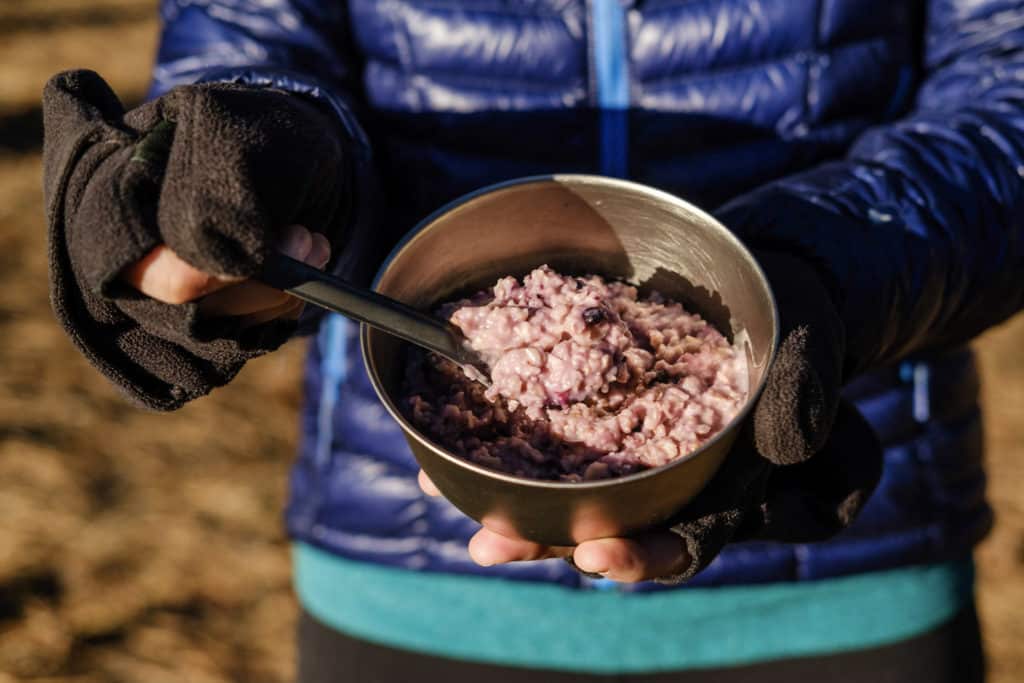
Boosting your backpacking nutrition by consuming protein and carbohydrates together will help you prolong your satiety and keep you going longer. This translates to less time eating and more time hiking. Each time you eat, aim to include around 60-90 grams of carbohydrates and 15-25 grams of protein at each meal and 15-30 g of carbohydrates and 5-10 g of protein per snack.
Examples of protein + carbohydrate pairing :
- 4 Tbsp nut butter + 1 cup oatmeal = 16 protein, 30 carbohydrate
- 1 oz beef jerky + ½ cup dried fruit = 15 g protein, 30 g carbohydrate
- 1 tuna pouch + 1.5 oz pita chips = 17 g protein, 28 g carbohydrate
Backpacking Nutrition Tip #4:
Don’t forget the fluids!
Another important consideration regarding backpacking nutrition on the trail is ensuring adequate fluid intake. Dehydration negatively impacts performance, and the signs of dehydration are rather unpleasant to experience. Learning your fluid needs will enable you to stay hydrated and energized throughout your hike.
Signs of dehydration:
- Reduced urine output
- Dizziness
- Lack of energy
- Headache
- Confusion
- Lack of appetite
- Rapid breathing
Hydrate proactively
It is important to understand that thirst is not a good mechanism to tell you you need to drink water. If you feel thirsty, you are already on your way to becoming dehydrated.
Hydration strategy:
- Set a timer to remind you to drink water periodically throughout your day.
- Fluid needs will vary from person to person, but everyone should begin a hike by drinking 8-16 ounces (230-470 mL) of water.
- After that, drink enough water to prevent losses of more than 2% of your body weight.
- If hiking for multiple days and weighing yourself is not an option, keep an eye out for signs of dehydration (see above).
- Climate and the type of sweater you are also influence fluid needs.
Are electrolyte replacements necessary?
Electrolyte replacements are an unnecessary expense and add unwanted weight to your pack. Electrolytes can be sufficiently replaced with salty foods during and after your hike for most backpackers.
Here are a few of our favorite electrolyte replacement foods:
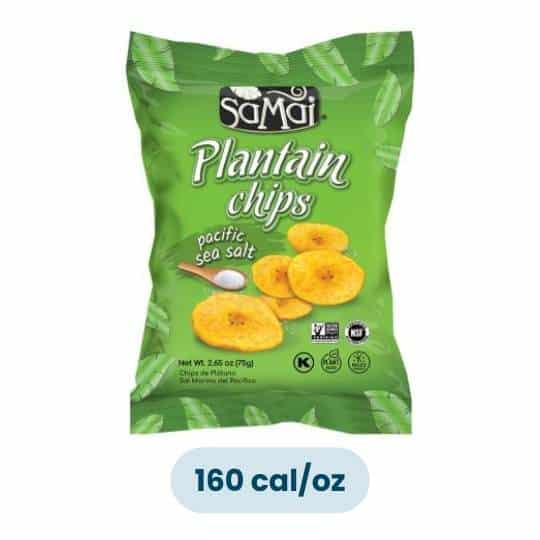
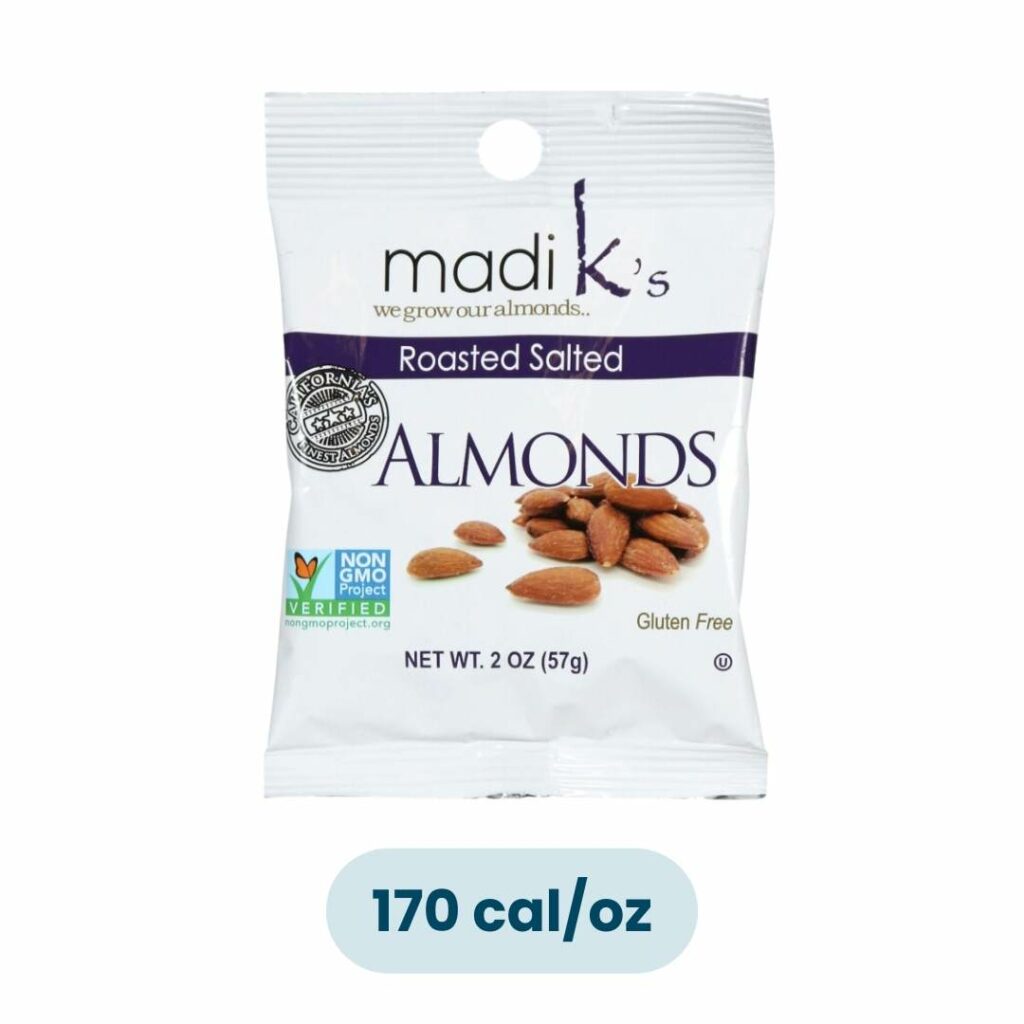
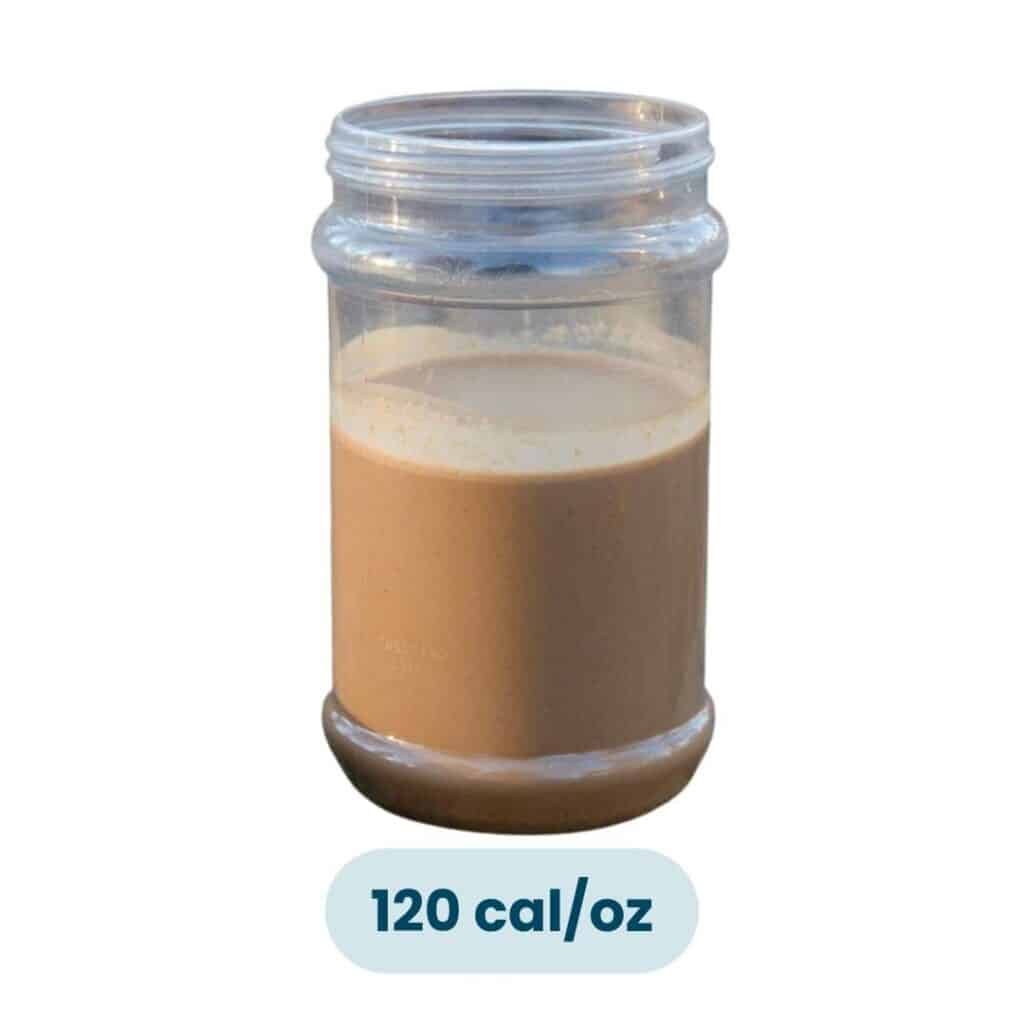

Backpacking Nutrition Tip #5:
Eat to hike, not hike to eat.
Improving your backpacking nutrition can require a lot of time and patience. However, the more time you spend on the trail, the more you learn how your body responds to food. From there, you will identify what changes need to be made.
Stay curious throughout this experiment and use every hike as a learning opportunity. Once your nutrition is dialed in, you will hike faster and stronger without focusing so much on your food. This will improve your experience on the trail by removing unnecessary weight from your pack while meeting your nutrition needs with foods you enjoy.
Disclaimer: This is general nutrition advice, and you should talk with your physician before implementing any dietary or lifestyle changes.
Are you feeling completely overwhelmed by the meal planning process?
You’re not alone! Dialing in your nutrition for epic adventures can certainly feel overwhelming. Backcountry Foodie has two services designed to alleviate the stress and anxiety – Nutrition Coaching & our Resupply Service.
Maybe your backpacking food is weighing you down?
Backcountry Foodie is your go-to resource for over 200 backpacking dietitian-created recipes and a one-of-a-kind automated meal planning tool. The meal planner even creates itemized shopping lists for you! Meal prep has never been easier.

Did you enjoy this post?
Pin it and share it with your fellow hikers.
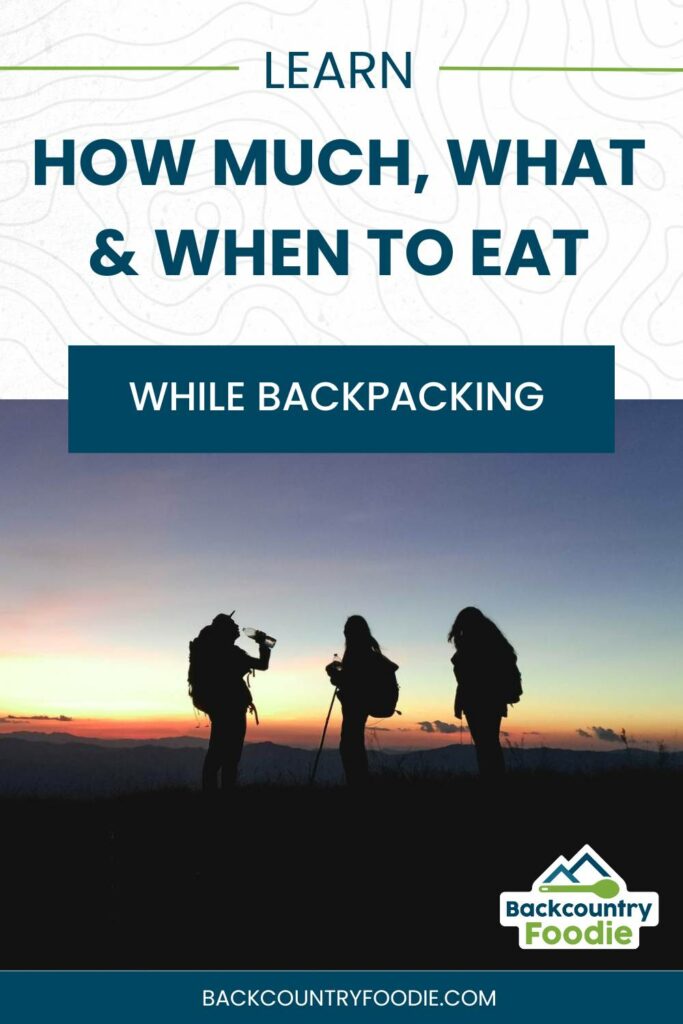
Are you new to our blog?
Here are more posts that you might find interesting…
- How to Create a Quick & Easy Meal Plan
- How to Eat for Backpacking in Extreme Conditions
- Top 6 Nutrition & Hydration Tips for High Altitude
- Ultralight Meal Planning Tips for Thru-Hikers
ABOUT THE AUTHORS:
Sadie Hitsky, MS, RD was a dietetic intern (now registered dietitian) mentored by Aaron Owens Mayhew, MS, RDN, CD. She has a Bachelor’s and Master’s degree in Nutrition from Bastyr University. She loves cooking, gardening, and all things outdoors – snowboarding, soccer, and, most recently, backpacking!
Aaron Owens Mayhew, MS, RDN, CD, is the founder and owner of Backcountry Foodie. Aaron is a registered dietitian and ultralight long-distance backpacker with a passion for food. She spends much of her time experimenting with new ultralight recipes in her kitchen and later trail tests them to ensure that they meet backcountry adventurers’ needs. You can follow Aaron’s adventures in the kitchen and in the backcountry via Instagram and Facebook.
SOURCES:
- Asker Jeukendrup. A Step Towards Personalized Sports Nutrition: Carbohydrate Intake During Exercise. Sports Med. 2014; 44(Suppl 1): 25–33.
- Chad M. Kerksick, Shawn Arent, Brad J. Schoenfeld, et al. International society of sports nutrition position stand: nutrient timing. Journal of the International Society of Sports Nutrition; 14 (33): 2017.
- Jonvik KL, Paulussen KJM, Danen SL, et al. Protein Supplementation Does Not Augment Adaptations to Endurance Exercise Training. Med Sci Sports Exerc. 2019 Oct;51(10):2041-2049
- Pantelis T. Nikolaidis, Eleftherios Veniamakis, Thomas Rosemann, and Beat Knechtle. Nutrition in Ultra-Endurance: State of the Art. Nutrients. 2018 Dec; 10(12): 1995.



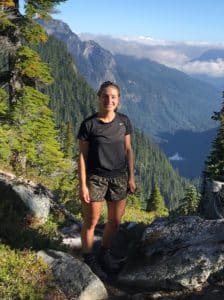
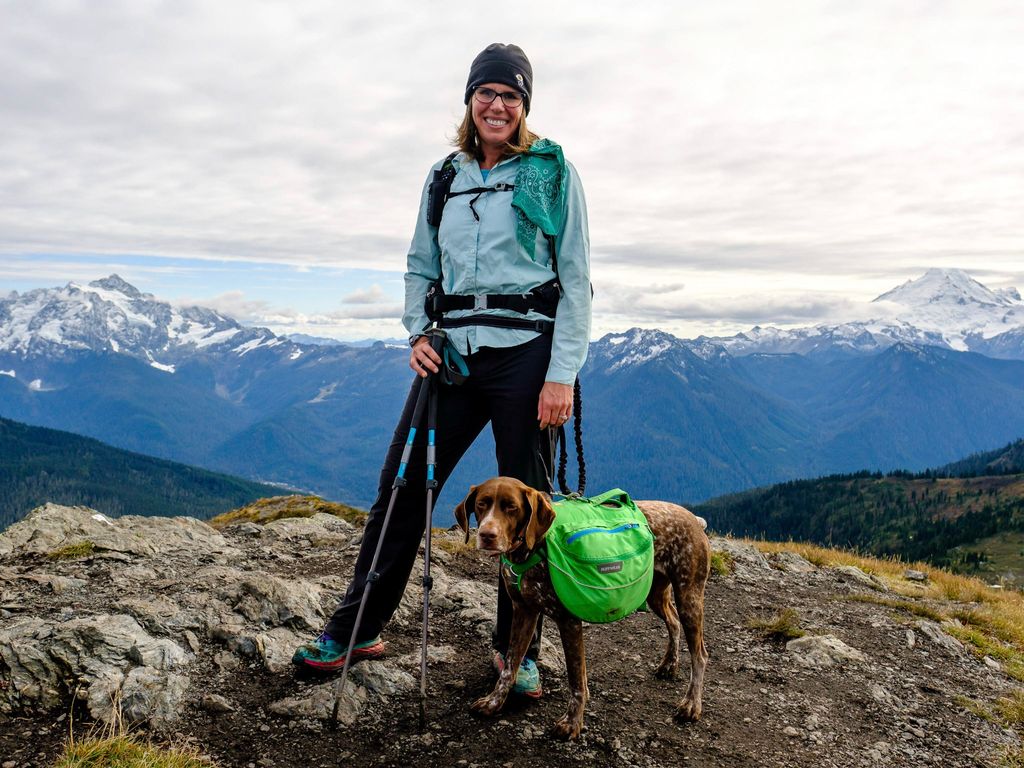
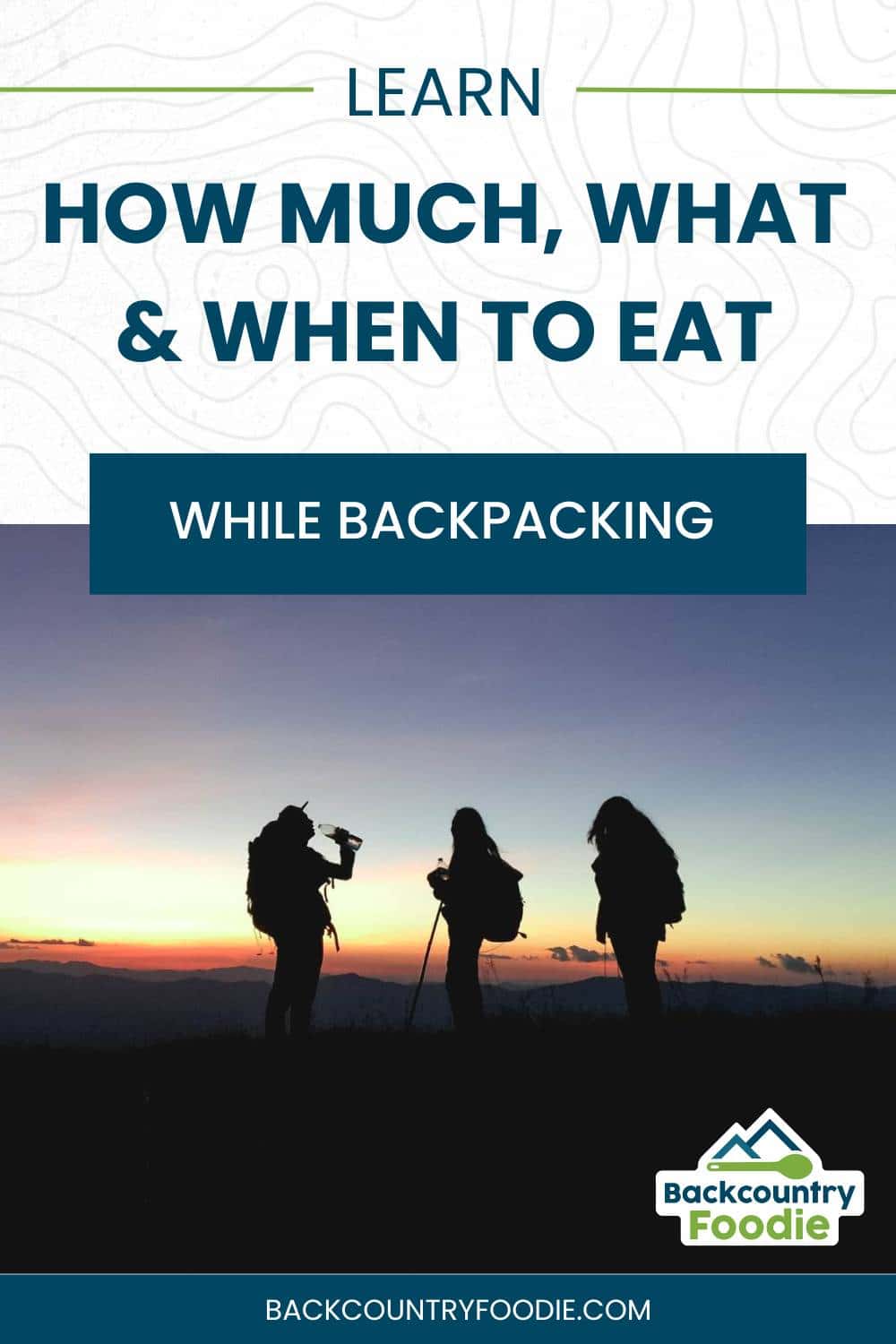
Leave a Reply